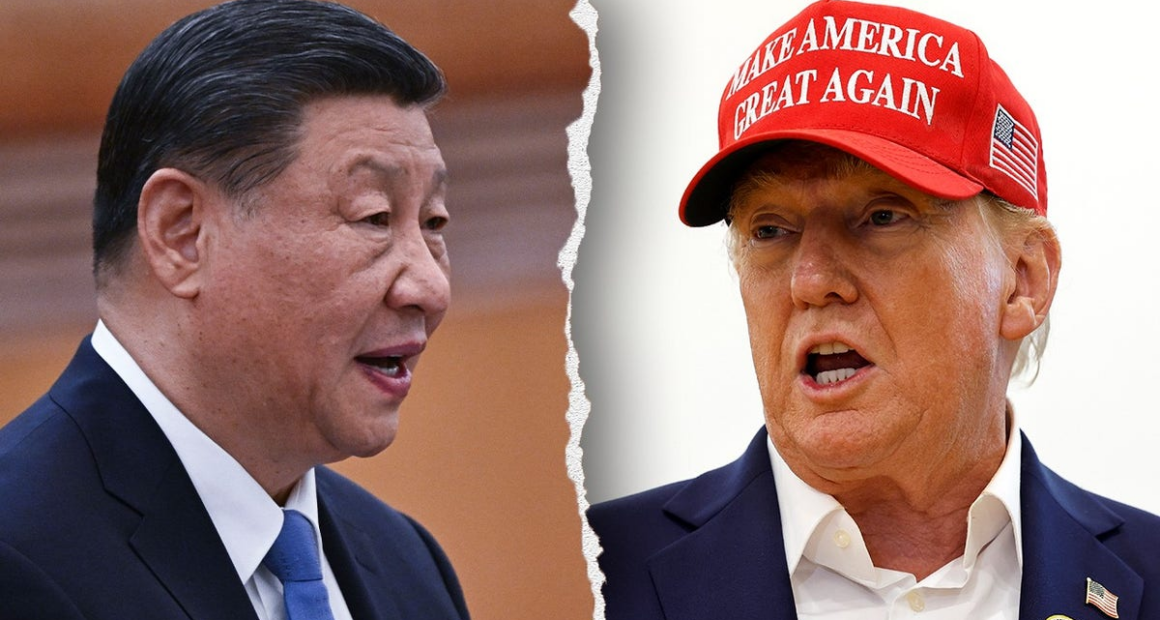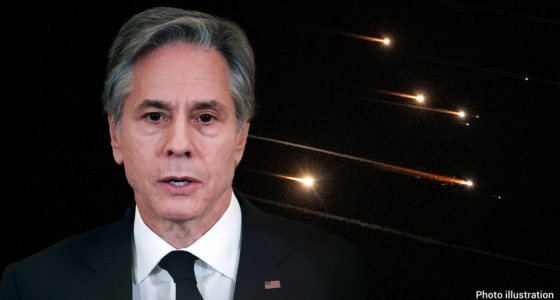KAOHSIUNG, Taiwan — The official response from Xi Jinping’s communist China to President-elect Trump’s victory was formulaic.
“Our policy towards the U.S. is consistent,” foreign ministry spokesperson Mao Ning told reporters Wednesday afternoon. “We will continue to view and handle China-U.S. relations in accordance with the principles of mutual respect, peaceful co-existence and win-win cooperation.”
National Taiwan University Department of Philosophy professor Yuan Juzheng returned to Taiwan from a trip to China on Monday, where, he noted, nearly everyone he met with wanted to talk about the U.S. election. He told Fox News Digital a Trump win is a “worst-case scenario” for Beijing. China experts, as well as Chinese citizens online, believe the next four years under President-elect Trump will almost certainly worsen already strained ties.
During the campaign, Trump made it abundantly clear he would adopt a tariff-based approach to trade with China. Professor Yuan explained that China had “not been prepared psychologically” when, around 2018, President Trump hit huge Chinese companies such as Huawei with tariffs.
TAIWAN REACTS TO TRUMP’S THEY ‘SHOULD PAY US FOR DEFENSE’ COMMENTS
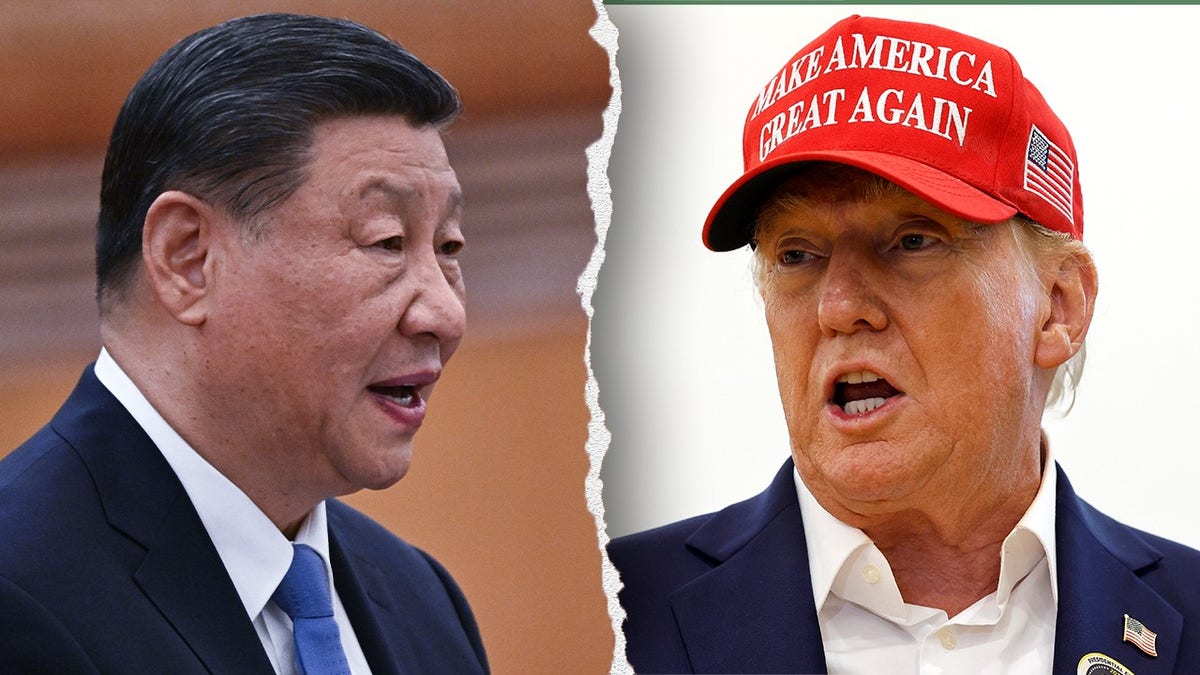
China’s President Xi Jinping and President-elect Trump. (Getty Images)
But this time around, Yuan says, China knows how much such policies will hurt, and they will come at a time when China’s domestic economy is not doing well.
“Three key issues will continue to dominate the U.S.-China relationship. They are the three T’s — trade, technology and Taiwan,” Zhiqun Zhu, a professor of political science and international relations at Bucknell University, told Fox News Digital a few hours before Trump’s stunning triumph became official.
On Wednesday, Taiwan President William Lai wrote on X, “Sincere congratulations to President-elect @realDonaldTrump on your victory. I’m confident that the longstanding # Taiwan – #US partnership, built on shared values & interests, will continue to serve as a cornerstone for regional stability & lead to greater prosperity for us all.”
Taiwanese Vice President Bi-khim Hsiao, also via X, added, “I join President Lai in offering my congratulations to President Trump, VP-elect Vance, and the American people. Looking forward building a strong Taiwan-US partnership, for freedom, peace, and economic prosperity.”
The Taiwanese public has had mixed views about the U.S. election. Some here find Trump’s often brash and blunt personality unappealing. One recent poll showed over 50% of the Taiwanese preferred Harris to Trump. However, many Taiwanese have also said they viewed Trump as potentially “better for Taiwan,” mostly due to an expectation that he will take a hard line on China. That expectation is shared on the other side of the Taiwan Strait.
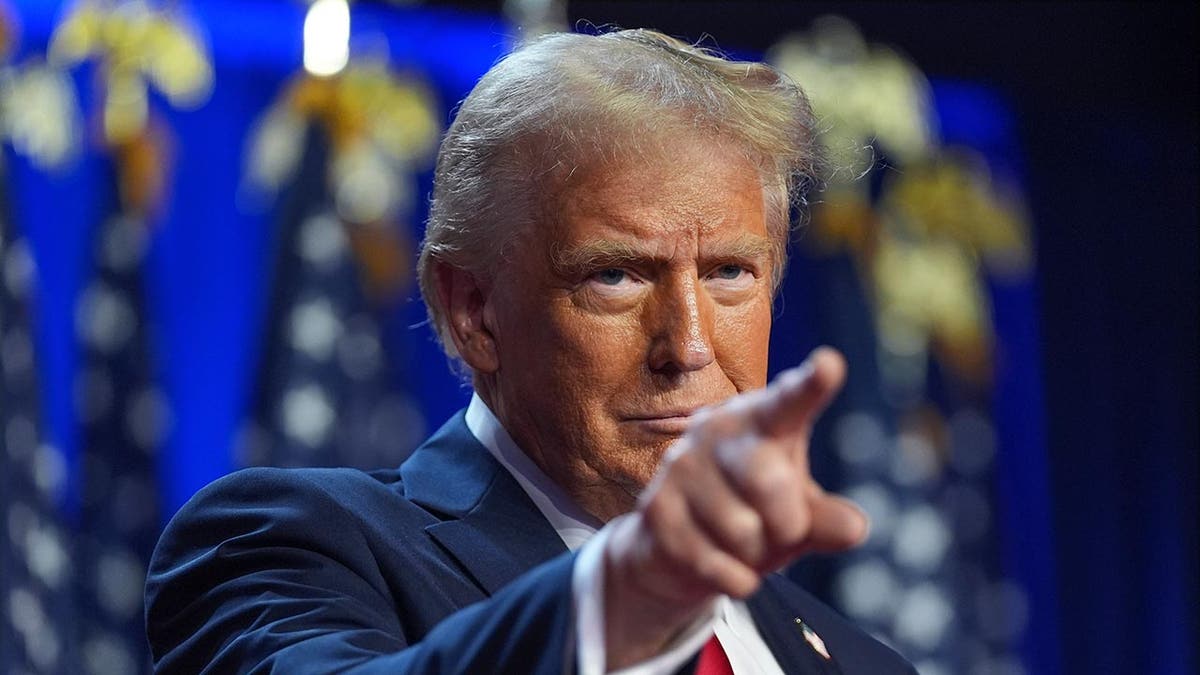
Trump arrives at an election night watch party at the Palm Beach Convention Center in West Palm Beach, Florida, on Wednesday. (Evan Vucci/AP)
Ross Darrell Feingold, a Taipei-based lawyer and commentator on local and regional politics, is among a small group of Americans living in Taiwan who are active on TouTiao, a Chinese information platform owned by ByteDance, the parent company of TikTok. With over 150 million daily users, TouTiao could be likened to a hybrid of Facebook and X.
On the Sunday before the U.S. election, Feingold posted a question on TouTiao that was finally allowed to be published after some rewording due to China’s strict internet controls.
“As a Chinese person, do you think Trump or Kamala Harris will be more harmful to China-US relations?” he wrote.
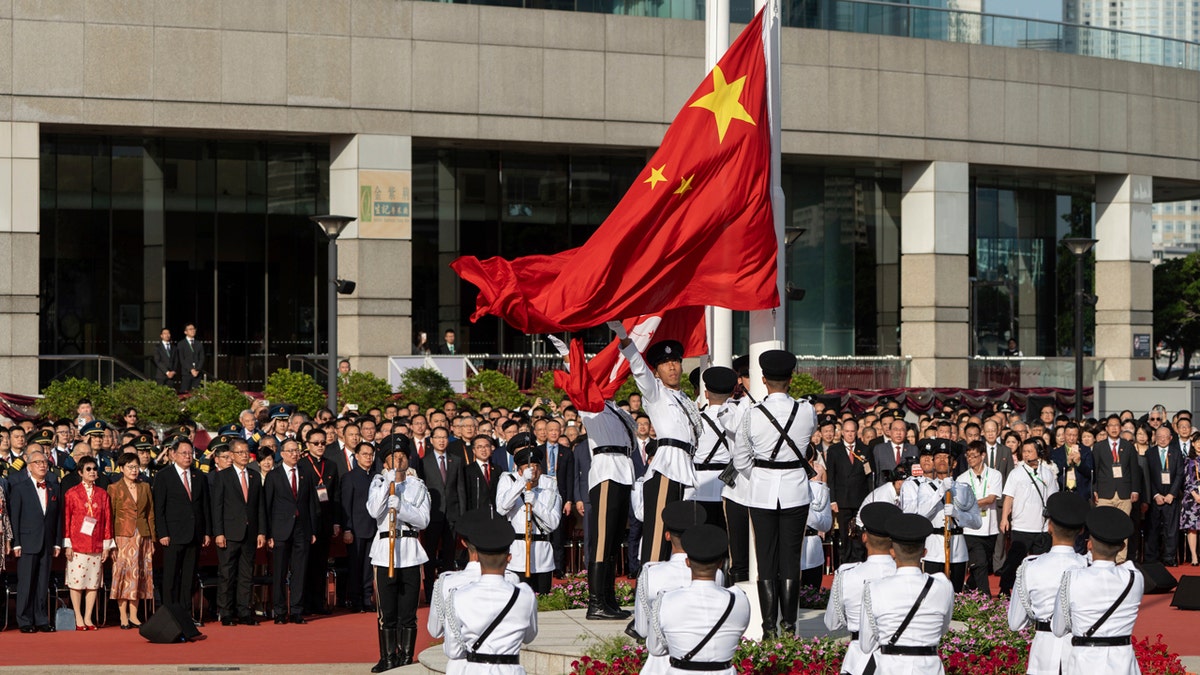
A Hong Kong police honor guard raises China and Hong Kong flags during a ceremony in celebration of the 75th National Day of the People’s Republic of China in Hong Kong on Oct. 1. (AP Photo/Chan Long Hei)
More than 30,000 people viewed the question, and roughly 5,500 provided a variety of answers that included some direct support for Democratic nominee Harris, whom Chinese netizens have given the nickname “Ha Ha Sister,” a reference to the vice president’s exuberant laughter.
Feingold, however, noted the near unanimity in Chinese netizens’ comments that the U.S. is hostile toward China and doesn’t wish to see it rise to its rightful place as a global power.
“Based on the comments I received on TouTiao, the public in China seems to think the U.S. — led by a leader from either party — would seek to restrain China’s growth,” Feingold told Fox News Digital.
He added that it can be difficult to determine whether internet comments reflect genuine personal opinions or are merely the parroting of ideas from China’s state-run media. Overall, Feingold says, the Chinese public has begun to take American policies personally, interpreting them as being directed at ordinary Chinese people rather than critiques of the governing Chinese Communist Party.
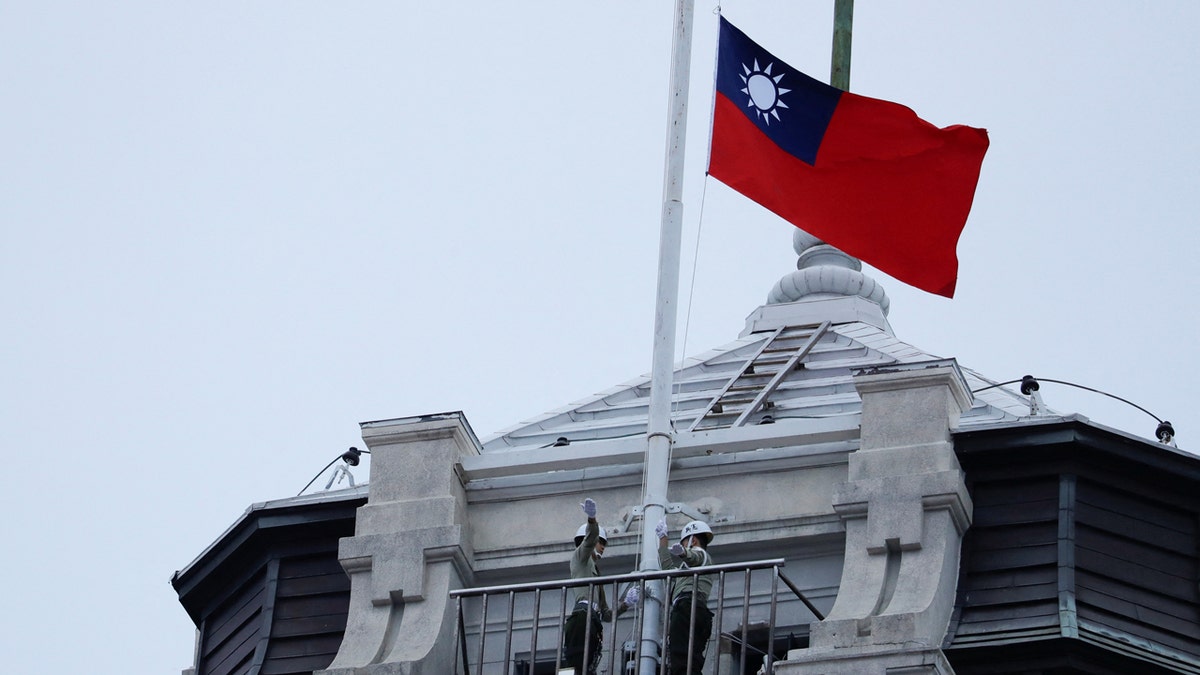
Honor guards raise a Taiwanese flag at the Presidential Palace ahead of the National Day celebration ceremony in Taipei, Taiwan. (Reuters/Carlos Garcia Rawlins/File Photo)
Zhu, the Bucknell professor, laid it out starkly in comments to Fox News Digital, saying, “While over 80% of Americans surveyed view China negatively now, the positive Chinese views of America have also dropped. … What is different now than a few years ago is that many Chinese, including liberals in China, have become more critical of the United States… and believe the U.S. is not welcoming Chinese students, tourists and businesspeople.”
Zhu noted that some states such as Florida have cut virtually all cultural and educational exchanges with Beijing.
Japan, which also has a tense relationship with China, offered its congratulations to Trump on Wednesday. Barron’s quoted Japanese Prime Minister Shigeru Ishiba as saying he hoped the countries’ alliance would move “to new heights” during Trump’s second term.
CLICK HERE TO GET THE FOX NEWS APP

North Korean leader Kim Jong Un, left, supervises artillery firing drills in North Korea on March 7. (Korean Central News Agency/Korea News Service via AP)
In a post on X, South Korean President Yoon Suk Yeol both congratulated and praised Trump, writing, “Under your strong leadership, the future of the ROK [Republic of Korea]-U.S. alliance and America will shine brighter. Look forward to working closely with you.”
And despite the views of some that North Korean dictator Kim Jong Un would welcome the return of Trump to the White House, there was no immediate official comment from the so-called “Hermit Kingdom.” But North Korea “fired multiple short-range ballistic missiles toward its eastern sea” hours before the U.S. election on Tuesday.
Get the latest updates from the 2024 campaign trail, exclusive interviews and more at our Fox News Digital election hub.

